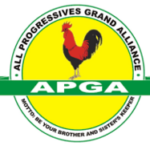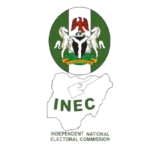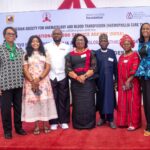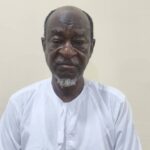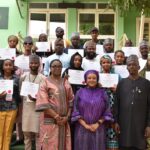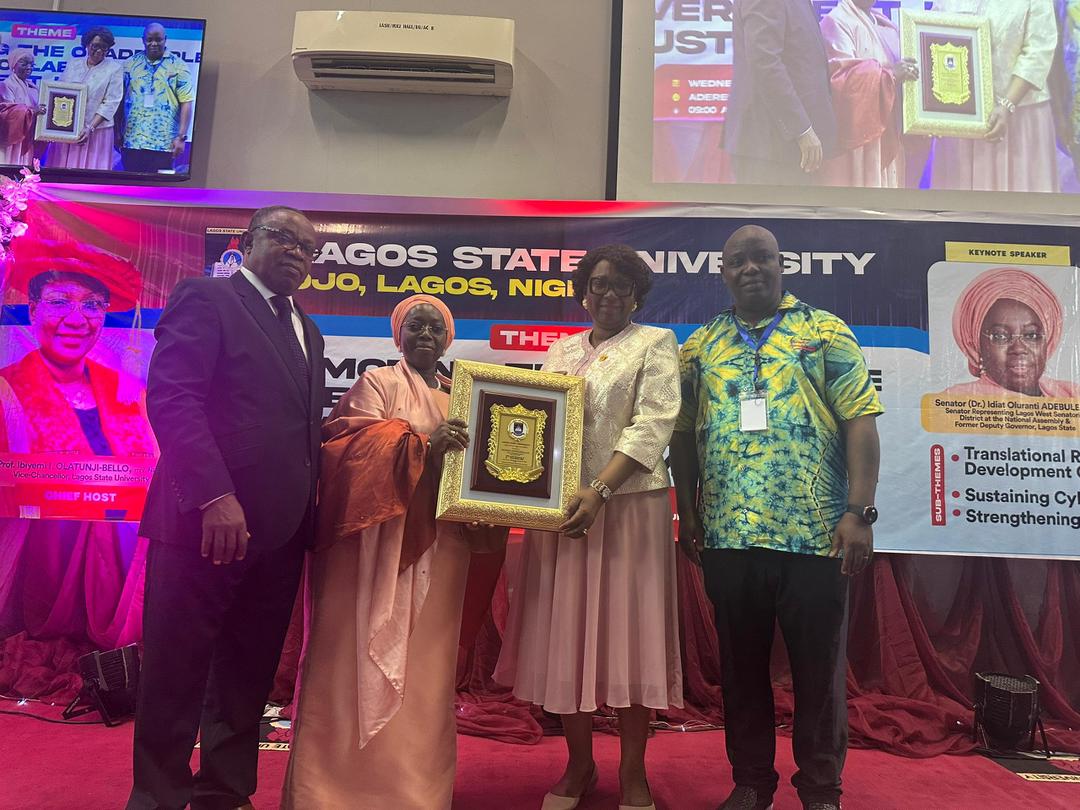By Henry Oladele
Sen. Oluranti Adebule (APC-Lagos) has urged the state House of Assembly to fast track passage of the Innovation Bill to provide funds that would carter for research activities.
Adebule, a former deputy governor of Lagos state, made this known at the Lagos State University (LASU) Seventh Research and Innovation Fair, held at the Aderemi Makanjuola Lecture Theatre, Ojo.
The News Agency of Nigeria (NAN) reports that Adebule is also the senator representing Lagos West Senatorial District at the National Assembly.
NAN also reports that the Fair had the theme: ‘Promoting The Quadruple Helix Collaboration: Government, University, Industry, and Community’.
Adebule said that LASU would benefit immensely if the bill is passed.
“The Lagos assembly should fast track the passage of the Lagos Innovation Bill to provide a solid legal framework to anchor research and innovation.
“This is in the quest to grow the culture of innovation in Lagos and our tertiary institutions using the quadruple helix collaboration model.
“The bill also seeks to create research and development innovation fund to cater to innovation hubs, technology parks, and start-ups.
“It also provides incentives and support for doctoral and post-doctoral research activities,” she said.
She then urged the Gov. Babajide Sanwo-Olu, who also is the visitor of LASU, to ride on the momentum of the commendable seventh LASU innovation fair.
“This is to ensure the on-going structural and infrastructural development in LASU are sustained.
“I could see the students’ hostel, the central university library, LASU Homes Staff Housing Scheme, Standard healthcare facility, and other physical facilities.
“These are non-financial in nature but go a long way to motivate existing professionals and attract the best human capital to LASU,” she said.
While dwelling on the theme, Adebule said the quadruple helix model of innovation is a framework that emphasised the collaborative, multi-directional relationship between four key actors.
“These are the government, academia, industry, and civil society. It is an expansion upon the Triple Helix model by adding the public as an active and crucial participant in the innovation process.
“Taking it closer home, we can further opine that the quadruple innovation helix framework describes the interactions of the government, university, industry, and community within a knowledge economy.
“The model envisions these four actors working together in a dynamic, interwoven system to create sustainable and socially beneficial innovations,” she said.
She added that Lagos state, Nigeria, Africa, and indeed the global community, navigated a world driven by knowledge, technology, inclusivity and sustainability.
“There is no better way to ensure the accomplishment of the vision of LASU than a strategic commitment to research, innovation, and development.
“This will create a meeting point between the gown and the town.
“It is settled that while teaching transmits knowledge and community service demonstrates impact, it is research that generates the new knowledge and innovations that shape societies, drives development and sustain economies,” she said.
She added that research findings without collaborations with industries risked remaining trapped in the ivory tower.
“The challenge for us today as it has always been for the academia, is how to find effective and efficient convergence between societal needs on one hand and research focus, findings and outputs, on another.
“It is for universities, tertiary educational institutions, research institutes and innovation laboratories, to ensure that ideas become prototypes, that prototypes become products, and that products transform lives.
“This is why the LASU Quadruple Helix Model becomes indispensable, and must be pursued and sustained,” she said.
she, therefore, urged all stakeholders, government leaders, industry captains, academics, and community stakeholders to seize the opportunity to commit to genuine collaboration.
“There is need to also build an innovation ecosystem that will make Lagos and Nigeria not just Africa’s economic hub but also its knowledge and innovation capital,” she said.
Earlier, the LASU Vice Chancellor, Prof. Ibiyemi Olatunji-Bello, in her welcome address, said the annual fair is more than just an academic exercise.
“It is the manifestation of our deepest institutional commitment: to move beyond theoretical knowledge and translate our research into tangible solutions that drive development.
“We will showcase groundbreaking work across engineering, medicine, the humanities, and the sciences projects, designed to solve real-world problems facing Lagos, Nigeria, in pursuit of our vision .
“This year’s theme is particularly poignant. It is a recognition that no single entity can tackle the complexities of sustainable development alone,”she said.
She said that in LASU, it is understood that research only achieved its maximum impact when it is grounded in the needs of the community.
“The community is the ultimate beneficiary, the source of vital data, and the final adopter of innovation.
“The university generates knowledge and talent. Industry commercialises the innovation and creates jobs.
“Government provides the enabling policy, regulation, and funding environment, and the community provides the context, demands the solution, and validates its utility,”she said.
She added that the task over the next two days is to actively forge these four helices into a resilient, collaborative structure.
“We must use this fair as a marketplace for ideas and for partnerships, not just for presentations.
“The seventh LASU Research and Innovation Fair stands as a testament to the fact that LASU is not just a university in Lagos but a university for Lagos, a critical partner in the state’s socio-economic blueprint.
“Let us work together to ensure the sustainability of this annual LASU Research and Innovation Fair, securing its future as a premier platform for national development,”she said.
One of the speakers, Prof. Ibrahim Katampe, a Professor of Chemistry, spoke about ‘Promoting The Quadruple Helix Collaboration’.
Katampe is also an Assistant Director forInnovation & Technology Incubation, College of Engineering, Science, Technology and Agriculture, Central State University, Ohio, U.S.
He said translational research is a goal-oriented systematic process of converting basic research knowledge into practical applications that directly benefitted society.
“Translational research is important because it connects knowledge to action, speeds up innovation, addresses real world problems, and maximises societal impact,”he said.
NAN reports that present at the fair are, Mr David Sunmoni, Immediate Past Pro-Chancellor and Chairman, 12th LASU Governing Council, LASU Management and Senior Staff. (NAN)
Edited by Chioma Ugboma


